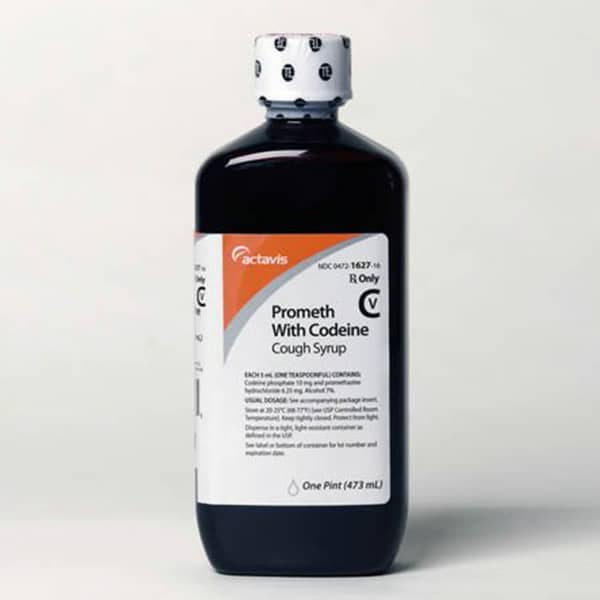Actavis promethazine cough syrup 16OZ
300 CFA – 2000 CFA
Actavis Promethazine Cough Syrup is the best brand that we have in stock. Bottles: 8 oz, 12 oz, 16 oz. Delivery quality Guaranteed 100%. Quick Shipping Available with UPS,FedEx,EMS. tracking numbers that are accompanied by references. Delivery time: two days; discreet and safe shipping savings on large purchases. We sell the cough syrup in pints (473ml). We deal directly with the primary buyers, and we will be grateful if the buyers could provide their phone number and email address for further business correspondence.Please order the number of pints you require by contacting us at any time.
Actavis promethazine cough syrup 16OZ
Regrettably, celebrities, popular music, TV, and movies can promote drug use, even prescription drugs, and these drugs are getting more and more well-liked for purposes other than those for which they were design, buy actavis promethazine USA.
When taken as directed, prescription medications are dependable and effective, but misuse can be harmful. Promethazine with codeine syrup, a highly well-liked prescription-only cough and cold remedy, was recently taken off the market by Actavis, a pharmaceutical company. The product’s popularity for recreational use is the reason for its discontinuation.

What is promethazine with codeine syrup actually used to treat?
Promethazine with codeine syrup is indicate for the temporary relief of coughs and upper respiratory tract symptoms related to allergies or the common cold.
What is promethazine used for?
As an antihistamine, promethazine is comparable to over-the-counter medications like Allegra, Benadryl, Claritin, and Zyrtec. Antihistamines are commonly used to treat cold and allergy symptoms because they help dry up excess secretions, such as watery eyes and runny nose, and reduce swelling and inflammation. In addition, promethazine is used to treat sedation, pain, motion sickness, and nausea and vomiting, shop here.
What is codeine used for?
Codeine is an opioid analgesic which is typically use to help relieve pain. It is also an antitussive, meaning that it can be used to help relieve coughing.
What are the common side effects of promethazine with codeine?
Some common side effects associated with promethazine with codeine syrup include: drowsiness, dizziness, headache, lightheadedness, blurred vision, upset stomach, nausea, constipation, increased sweating, and dry mouth.
How is promethazine with codeine being used recreationally?
The syrup is typically being mixed with soft drinks and then consumed as a drink, in much higher quantities than the usual prescribed dose.
What are the common street names for this medication?
The combination is often known by names such as purple drank, lean, sizzurp, syrup, purp, and others.
Do other companies still make this medication?
Yes. There are four other pharmaceutical companies that currently make this medication:
-
Caraco Pharmaceuticals
-
Qualitest Products Inc.
-
Hi Tech Pharmacal Co Inc.
-
Wockhardt USA Inc.
Currently, no other pharmaceutical companies have stepped up to discontinue or change their current products. Actavis may have started a trend, although currently this is considered unprecedented decision.
Uses of actavis promethazine
The symptoms of the common cold, the flu, allergies, and other respiratory conditions (such as sinusitis and bronchitis) are treated with this combination medication.Promethazine is an antihistamine that relieves watery eyes, itchy eyes/nose/throat, runny nose, and sneezing. An opioid cough suppressant (antitussive) called codeine works by affecting a specific area of the brain to lessen the urge to cough.Opioid cough suppressants should not be used by children younger than 18 years. Serious side effects, including breathing difficulties, are more likely to occur in children and may even be fatal. Consult the doctor about the advantages and disadvantages of this prescription.Cold remedies do not treat colds.Medications are frequently unnecessary when treating a cough brought on by a common cold. Find out additional ways to relieve pain from your doctor or pharmacist, shop here.
How to use Promethazine-Codeine
Each time you receive a refill or before you begin taking codeine or promethazine, read the medication guide that your pharmacist has provided. See your physician or pharmacist if you have any questions.
As directed by your physician, take this medication orally, typically every 4 to 6 hours as needed, with or without food. If you experience stomach upset, you can take this medication with food. When using this medication, unless your doctor instructs you otherwise, stay hydrated.
Use a special measuring spoon or device to measure the dosage carefully. A household spoon may not give you the right dosage, so avoid using one.
Never take more than the recommended amount, or use this product more frequently or for longer than advised. Your health won’t get better any quicker.
Side Effects
There may be symptoms like headache, lightheadedness, drowsiness, nausea, upset stomach, headache, constipation, or dry mouth. Inform your doctor or pharmacist right away if any of these side effects persist or worsen.
When getting out of a sitting or lying position, take it slowly to lessen the chance of experiencing lightheadedness and dizziness.
It may become harder to breathe and clear your lungs as a result of this medication’s tendency to dry out and thicken lung mucus. Drink plenty of fluids to help prevent this effect, unless your doctor instructs you otherwise.
Recall that your doctor has prescribed this medication because they believe it will benefit you more than it will cause negative side effects. Many users of this medication report no significant adverse effects.
How should I take promethazine?
Adhere to your doctor’s prescription for promethazine exactly. Observe the instructions on the label of your medication. Occasionally, your doctor may adjust your dosage to ensure you receive the best possible outcomes. Never take this medication for longer than is advised or in larger or smaller doses.
It’s common to take methazine right before bed or before eating. Promethazine is typically started for motion sickness one hour prior to travel. Promethazine for surgical purposes is typically taken the night before the procedure.
The condition being treated will determine how often you take this medication and when to take it.
Using the included dosing syringe, a dose-measuring spoon, or a medicine cup, measure liquid medication. Ask your doctor if you don’t have a dose-measuring device.
Inform your doctor if a child taking this medication experiences any changes in weight. Children’s doses of methazine are determined by their weight, so any changes could have an impact on your child’s dosage.
If, while taking promethazine, your symptoms do not go better or worsen, give your doctor a call.
Certain medical tests may yield unexpected results when this medication is used. Inform any medical professional treating you that you take promethazine.
Keep out of the heat, light, and moisture at room temperature.
What happens if I miss a dose?
Take the missed dose as soon as you remember. Skip the missed dose if it is almost time for your next scheduled dose. Do not take extra medicine to make up the missed dose.
What happens if I overdose?
Seek emergency medical attention or call the Poison Help line at 1-800-222-1222.
Overdose symptoms may include overactive reflexes, loss of coordination, severe drowsiness or weakness, fainting, dilated pupils, weak or shallow breathing, or seizure (convulsions).
What to avoid
This medication may cause cognitive or behavioral side effects. If you must be alert for anything, such as driving, exercise caution. Refrain from standing up quickly after sitting or lying down as this could cause vertigo. To avoid falling, get to your feet carefully and steadily.
Alcohol consumption may intensify some of promethazine’s negative effects.
Stay out of the sun and tanning beds. Promethazine can increase your susceptibility to sunburn. When you’re outside, put on protective gear and apply sunscreen with an SPF of 30 or higher.
actavis promethazine side effects
Get emergency medical help if you have any signs of an allergic reaction: hives; difficult breathing; swelling of your face, lips, tongue, or throat.
Stop using promethazine and call your doctor at once if you have:
- severe drowsiness, weak or shallow breathing;
- a light-headed feeling, like you might pass out;
- confusion, agitation, hallucinations, nightmares;
- seizure (convulsions);
- fast or slow heartbeats;
- jaundice (yellowing of the skin or eyes);
- uncontrolled muscle movements in your face (chewing, lip smacking, frowning, tongue movement, blinking or eye movement);
- easy bruising or bleeding (nosebleeds, bleeding gums);
- sudden weakness or ill feeling, fever, chills, sore throat, mouth sores, red or swollen gums, trouble swallowing; or
- severe nervous system reaction–very stiff (rigid) muscles, high fever, sweating, confusion, fast or uneven heartbeats, tremors, feeling like you might pass out.
Side effects such as confusion and severe drowsiness may be more likely in older adults.
Common promethazine side effects may include:
- drowsiness, dizziness;
- ringing in your ears;
- double vision;
- feeling nervous;
- dry mouth; or
- tired feeling, sleep problems (insomnia).
This is not a complete list of side effects and others may occur. Call your doctor for medical advice about side effects. You may report side effects to FDA at 1-800-FDA-1088.
What other drugs will affect actavis promethazine?
Cold or allergy medicine, sedatives, narcotic pain medicine, sleeping pills, muscle relaxers, and medicine for seizures, depression or anxiety can interact with promethazine and cause medical problems or increase side effects. Tell your doctor if you regularly use any of these medicines.
Also tell your doctor if you are using any of the following medicines:
- lithium (Eskalith, Lithobid);
- atropine (Atreza, Sal-Tropine), belladonna (Donnatal, and others), benztropine (Cogentin), dimenhydrinate (Dramamine), methscopolamine (Pamine), or scopolamine (Transderm-Scop);
- blood pressure medication such as guanadrel (Hylorel), guanethidine (Ismelin), propranolol (Inderal), and others;
- a blood thinner such as warfarin (Coumadin);
- bronchodilators such as ipratropium (Atrovent) or tiotropium (Spiriva);
- bladder or urinary medications such as oxybutynin (Ditropan, Oxytrol), solifenacin (Vesicare), and others;
- an MAO inhibitor such as isocarboxazid (Marplan), tranylcypromine (Parnate), phenelzine (Nardil), or selegiline (Eldepryl, Emsam); or
- medicines to treat Parkinson’s disease, restless leg syndrome, or pituitary gland tumor (prolactinoma); or
- medicine to treat stomach ulcer or irritable bowel syndrome, such as dicyclomine (Bentyl), glycopyrrolate (Robinul), hyoscyamine (Anaspaz, Cystospaz, Levsin, and others), mepenzolate (Cantil), or propantheline (Pro-Banthine).
This list is not complete and there are many other medicines that can interact with promethazine. Tell your doctor about all your prescription and over-the-counter medications, vitamins, minerals, herbal products, and drugs prescribed by other doctors. Do not start a new medication without telling your doctor. Keep a list with you of all the medicines you use and show this list to any doctor or other healthcare provider who treats you.
Warnings
If you experience twitching or uncontrollable movements of your eyes, lips, tongue, face, arms, or legs, stop using promethazine and contact your doctor right away. These might be precursors to harmful side effects. A child under the age of two should not be given promethazine. When taken by a very small child, methazine can result in fatal consequences or serious breathing difficulties. For children of any age, carefully follow your doctor’s instructions when administering this medication.
There are side effects from methadone that can affect your reactions and way of thinking. When driving or doing anything else that needs you to be awake and aware, exercise caution. Refrain from consuming alcohol as it may intensify certain promethazine side effects. Numerous additional medications exist that can.
Before taking actavis promethazine
A child under the age of two should not be given promethazine. Promethazine can kill very small children or cause serious breathing difficulties in them.For children of any age, carefully follow your doctor’s instructions when administering this medication.
If you have an allergy to promethazine or any related medications, such as fluphenazine, mesoridazine, perphenazine, prochlorperazine, thioridazine, or trifluperazine, you should not take this medication.
To make sure promethazine is safe for you, tell your doctor if you have:
- asthma, chronic obstructive pulmonary disease (COPD), sleep apnea, or other breathing disorder;
- a sulfite allergy;
- a history of seizures;
- a weak immune system (bone marrow depression);
- glaucoma;
- enlarged prostate or problems with urination;
- stomach ulcer or obstruction;
- heart disease or high blood pressure;
- liver disease;
- adrenal gland tumor (pheochromocytoma);
- low levels of calcium in your blood (hypocalcemia); or
- if you have ever had a serious side effect while using promethazine or any other phenothiazine.
Be the first to review “Actavis promethazine cough syrup 16OZ” Cancel reply
Related products
psychedelics
psychedelics
psychedelics
psychedelics
psychedelics
psychedelics
psychedelics











Reviews
There are no reviews yet.